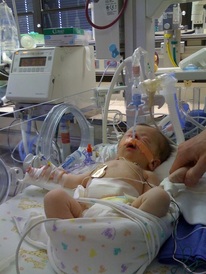 When you hear someone mention the acronym NICU, what words come to mind? Miracles? Sorrow? Triumph? Struggle? Heartbreak? Hope? Six years ago I heard the torturous sound of an EKG flatline, as my son died surrounded by his family. As is with my love, an ache in my heart still endures. And there are moments when I think of that NICU - the isolette, the tubes, the wires, and my tiny 5 pound baby and I still hear that sound. The sound that many...too many...parents hear every year. But because, his heart stopped beating in the NICU, it is a place I will always hold sacred. His lifetime. Our lifetime together. Every memory, every dream, every hope I ever had, is housed in the NICU. Here are five reasons why I still believe hope lives in the NICU: 1. Big things happen in the NICU Dreams, both new and old, are achieved in the NICU. Every day, babies defy the odds, grow, and learn to thrive. 2. Your home away from home The saying "home is where your heart is" truly applies. In the NICU, the word "family" is redefined. A community thrives here. Parents and medical professionals alike find new love, passions, and friendship. 3. Some of life's most treasured memories will be made in the NICU Ask any parent of a baby that has spent time in the NICU, the NICU is a place where memories that last a lifetime are made. 4. Heroes don't wear capes Heroism comes in many forms in the NICU- in the persistence and dedication of it's staff; in the spirit of the tiniest of patients; and in the unwavering love parents have for their children. 5. A place with a vital purpose The NICU provides thousands of babies every year with the best chance at life, when those first moments in the world are the hardest. 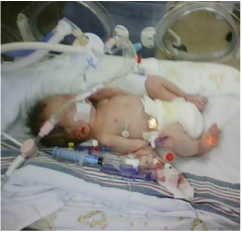 The NICU will forever remain my son's only home. The place of his first's and last's. The space where every memory lives, including every kiss and every sweet embrace. Our brief time in the NICU profoundly changed the course of my life - my career, my relationships, my philanthropic interests. More importantly, it showed me how love and hope endure, even in our darkest of hours. Because he lived, the NICU will forever be a home for my hopes. Written by Sarah King, President for Project Sweet Peas
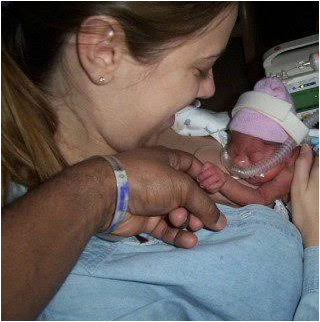 Dear Preemie Parent, Hi there! I saw you today. I smiled. Maybe I asked you how old your preemie was or maybe I didn't. I feel like I can sometimes pick a preemie out of a crowd. One day, you might too. I want to tell you a little bit about about hope. It took me a while to get here. Sometimes I thought about it every day – about when we we'd get “out of the woods” and no longer have fear that there would be something else wrong with our preemie. I have spoken with many preemie parents over the years. One common thing that almost all parents remember is what the doctors told them about the future in those first days. I too remember. Do you? My preemie was born with no heartbeat and was not breathing. What we were told is a) he probably wouldn't survive. There was a neurologist that came to my hospital room the day after our son was born. (Thank goodness I was still hopped-up on morphine at the time that even though I heard those words, they didn't process in my brain. I am pretty sure that was my body's defense mechanism). And, b) if he did survive we needed to be prepared for a long road of having a child with severe brain damage. Today, my preemie is an amazing student – a far cry from what the doctors told us almost 12 years ago. He plays sports – wrestling, baseball, basketball and football. I try not to think about it too much, about how far we have come – how far he has come, but when I do, I am in awe. I don't think about the fact that I had to call my husband from our son's bedside and tell him he needed to come to the hospital because our baby might die that day. That thought will be tucked way back in the depths of my brain forever, I am sure. I don't think about the fact that I was paralyzed with fear in those 3 months we spent in the NICU. I cried almost every day – more than once. Did you? I was angry, sad, scared and happy all in the same thought. Were you? Listen with your “third ear” to the doctors. Doctors are amazing, intelligent individuals and I wouldn't want their job, not at all. 99% of the doctors we have come in contact with over the last 11 ½ years have been awesome. But what one doctor told me is that sometimes they are just really good guessers. Of course, too, we had one doctor in the NICU that even though they knew that there was a real possibility of a grim future, he gave us the ability to hope for something more. Dr. S will always hold a special place in our hearts. He was the only one who gave us the tiniest bit of information to think that we'd actually make it outside the NICU doors with our baby (alive and well!). When we go back and see the doctors that saw him in those early days, they are amazed and impressed in the young man has become. Our story is unique – or is it? I have heard so many “we thought he'd never make it” stories over the years and I love every single one of them. One of the residents told me while we were still in the hospital that in the middle of the night, when she had to stay overnight in the hospital, she would come into the NICU and hold our little guy. She said she knew she was holding a miracle and that nobody she knew had ever seen a baby survive who started out the way he did. So, doctors go on what they know. My son's doctors only told us what they had seen. How I wish I could remember the name of that neurologist - I'd love to show him how far we've come. But, I want the doctors, to give another parent a little bit of hope. Maybe they can tell the next set of parents who have a baby who has an APGAR of 1, is barely breathing and may not survive - maybe they will tell them that while their little fighter has had a rough start and a lot of babies don't do well after this, there are some babies who pull through and surprise the hell out of us. I hope to God that your baby is one of those babies. Meanwhile, we are going to do everything we can to make sure that he is. We're going to try and we hope you come back and show us in 11 years how great he's doing. And then those parents are going to think to the future. 11 years from now!? Wow. They are going to try to picture their life with a 11 year old. Sass and eye rolling and a stinky boy coming home after practice (and he will offend you with how much little boy sweat smells) and they will smile through their tears, because someone gave them a little bit of hope. Are you that parent? Have hope. Don't listen to all the doom and gloom. Pray if you're the praying type, ask the universe to help you get through your bad days if that's what it takes. But, please, oh please don't loose hope. I've been there. We've all been there (did you know we're a part of an exclusive club?). Ask for help when you need it. Find organizations like ours that will link you with a mentor who has walked in similar shoes. We get it. Accept our hug – in person or virtual. Love, Another Preemie Mom who gets it 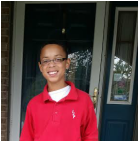 Beth is the President of The Little Bear Foundation. She is the mom of 3 children - one preemie and two full termers. When she is not helping others through her Little Bear work, you can find her on the sidelines of a football field, basketball court, baseball field or soccer field cheering on her amazing kids. 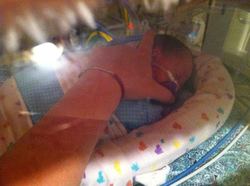 Our story begins when I found out in April of 2014 that we were expecting again. My husband and I had 4 children already and we could not wait to meet our new blessing! We went for our 2nd prenatal appointment and found out we were pregnant with twins. Four weeks later, we found out that they were identical twin girls who were suffering from Twin to Twin Transfusion Syndrome (TTTS) at 16 weeks. From then on I was on bed rest. The following week we drove to Cincinnati for the Placenta Abrasion surgery. After seeing 4 different specialists and four hours of surgery, we were in recovery. That night, we woke up to check on the girls, who we had already named Isabella Grace and Lillian Mae Autry, to find out twin B, the "donor twin" (Lilly), didn't make it through the night after surgery. We came home and for 4 weeks I was on bedrest. I woke up one morning at just 20 weeks to find my water had broken. I went to the hospital for a 3 day stay for antibiotics and to measure fluids. I was discharged and sent home with them saying we will check fluid each week and go from there. If she was still thriving at 24 weeks, I would be hospitalized for the remainder of the pregnancy. Finally after the longest 4 weeks of my life, I was admitted. Isabella (Ella), twin A, was fighting hard!! 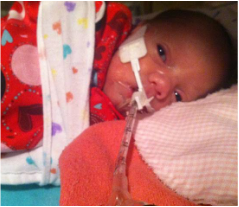 After almost 6 weeks in the hospital on bed rest, I had a placental abruption, which meant I needed an emergency C-section. We had no idea what was going to happen with Ella. She came August 19th 2014, and took her first breath by herself, which didn't surprise any of us as hard as she fought to be in the world! Then they vented her and rushed her away. I went to recovery for an hour, and then was rushed to the NICU, while being told, "they had done everything they could do." I asked, "Is her heart still beating?" They replied, "yes." ..and I said, "keep trying!" I knew we did not go through all that for her not to live. Family and friends started praying all over the U.S. Her heart kept beating. She made it through the night. The next day still told they didn't think she would make it. But, she kept fighting. We were allowed to touch her. We were encouraged to spend as much time as possible with her. Finally that afternoon on the 2nd day, while we were touching her, her vitals began to signs of improvement. The next day, we found our she had a brain bleed in two sections of her brain. She needed tubes in her lungs and her vitals were up and down. They said her future was unknown. She could be disabled, delayed, who knew. We just took it one day at a time and the NICU roller coaster began! There were ups and downs. She stayed 104 days with the amazing staff that we left a piece of heart with each night! We brought her home December 1st 2014. Many specialists still see her, and therapists still work on her. But now, she just turned one. Her Hydrocephalus, that she was diagnosed with, is "maintained without surgery." The hole in her heart has healed. She's still on oxygen at night. She crawled in therapy this week. She's a healthy, smart, sassy little girl that brightens the world of every one that meets her. And last week when we went for her check up, they took the "developmental delay" off her chart. Our girl has "caught up!" She's a miracle and we have been so blessed. A special thank you to the Autry's for sharing their story.
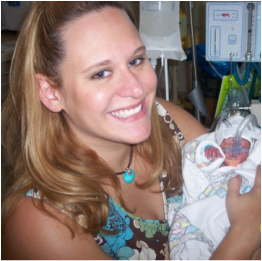 A wife that loses a husband is called a widow. A husband that loses a wife is called a widower. A child that loses its parents is called an orphan. There is no word for a parent that loses a child. That’s how awful it is. I can think of a few words to describe losing a child: devastating, broken, empty, crushed – but these words don’t even sum it up in totality. There is no one single word in the English language that can truly encompass a loss of such magnitude. I lost my daughter, Nevaeh nine years ago. She was born 10 weeks early with several complications. She passed away in the NICU six weeks later. Her death left a void in me that can never be repaired. It left an emptiness that never goes away. There were days I felt like I was going to drown in the darkness of grief. But eventually, I floated to the top. I am a grief survivor. As with grief and loss in the case of the death of a loved one, NICU parents are often expected not to speak of their grief. Death is hard to talk about no matter what, but it makes it even harder when a baby is involved. I found most people very uncomfortable when I brought up my daughter. They didn’t know what to say. A lot of people didn’t dare ask me about her life, or how I was coping after she died. I think they were afraid to bring the subject up, in fear of stirring up emotions. What they didn’t realize is that the emotions were already there no matter what. I wanted to talk about my daughter. I was so afraid that if I didn’t, she would be forgotten. I wanted people to know she had existed, that her life here on Earth – no matter how brief – mattered. I wanted people to acknowledge I was a mom – even if I didn’t have a baby to show for it. I’d meet people and they would ask if I had any children. Do you know how awful it is to have to sit and pause and think about how to answer that question? Because if you answer it truthfully, that yes – you have one daughter, but she is in Heaven now – people get uncomfortable and don’t know how to react. But if you simply say no – you feel like crap because you feel like your not acknowledging your child. Just when I thought I was getting a handle on grief, my daughter’s first birthday approached, and I was filled with vivid memories of her birth and short life. It brought all the feelings of loss, anxiety, panic and devastation all over again. Nine years later, I still cry on her birthday and the date of her death. I think some people still have a hard time understanding the emotions that her birthday and day she died brings. Grief is an awful thing. It is so hard to understand, and part of the reason is we all grieve differently. There are the five stages of grief: denial, anger, bargaining, depression and acceptance. I went through every one of them. I like to sum up grief like this: Grief is like getting a bad cut on your arm. At first the cut is really bad and deep and raw. But after time, it starts to heal. It never really goes away, and your arm is never really ever the same. And sometimes you look down at your arm, and see the scar, and the memories of how you got it flood back. That is grief in a nutshell. It does get better, but it never goes away. I know that I will never be the same, I am forever changed. I am a grief survivor.  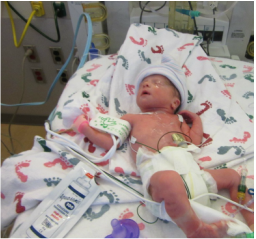 When we found out I was expecting triplets, the doctors quickly made us aware that it was a high risk pregnancy and that the babies would likely have to spend time in the NICU. I tried to prepare myself for the NICU experience, but I could never fully understand what a parent in the NICU goes through until I went through it myself. Our baby A (Savannah) was in the NICU for 6 days before we lost her. Our baby B (Paige) spent 55 days in the NICU before coming home and our baby C (Emma) spent 34 days in the NICU before coming home. The first time I saw my girls, I was overwhelmed because they were hooked up to so many machines. I went through so many emotions during our NICU stay that it was like being on a rollercoaster most days. Here are some of the emotions parents may experience during their time in the NICU: Fear: As a parent you want to protect and shelter your baby, and you can’t when your baby is in the NICU. You might not fully understand what’s going on and fear that your child may have a serious illness, a disability, or even die. The NICU is a scary place. Anxiety: The NICU goes hand-in-hand with anxiety for many parents. I remember being worried that my phone would ring at any time with bad news from the hospital. I was worried that I wouldn’t hear my phone and then I wouldn’t be there for my girls. Every time I called the nurses to check on our babies, I held my breath until they said everything was going well. Anger: Many parents feel anger that they didn’t get the birthing experience they hoped for, that they can’t take their child home right away like other parents do, that they can’t help their child, and that they can’t control events that happen in the NICU. You may even find that you’re angry at yourself. You may be angry that your body couldn’t protect your baby or that you couldn’t carry your baby longer. You may feel angry at other people as well and feel like they just don’t understand what you’re going though. I often felt angry that not only did I have trouble conceiving children, but I didn’t get the birthing experience that I’d always imagined and then we lost one of our babies. Guilt: You may also feel guilty and wonder what you did wrong or what you could’ve done differently. I often found myself asking “what if” and “why me.” It took me a long time to sort through my guilt, especially after we lost Savannah, and it still resurfaces. I work hard to acknowledge these feelings and to know that I did everything that I could for my girls. Loss: When you find out you’re pregnant, you have expectations of what things will be like when you have your child. Most parents picture a healthy, full-term child who they will get to take home after a few days. You may mourn the loss of this experience. Many mothers of premature babies also find that they miss feeling their baby inside and mourn the end of their pregnancy. Joy/pride: There are some good emotions that you experience in the NICU as well. You may experience a sense of joy as your baby starts to make progress. You may feel proud of your child as he overcomes obstacle after obstacle and has many of his firsts (first bath, first bottle, first smile etc.). Here are some helpful coping strategies to help you deal with the ups and downs of being in the NICU: Celebrate small steps!! Your child is fighting big battles and every triumph, no matter how small, should be celebrated! Take time for yourself. You may feel like you need to be at the NICU all the time, but you’ll burn yourself out if you don’t take breaks. Take this time to do something you enjoy or do something with your partner to reconnect. Start a journal. Writing in a journal during your NICU stay can help you keep things in perspective on those really rough days. Talk to supportive people. The NICU can be a lonely place, so work to find people to connect with who have similar experiences (even if it’s just an online support group). I don’t know how I would’ve made it through my pregnancy or NICU stay without my triplet moms support group. Allow yourself to cry if you need to. Help with the cares for your child. Change diapers, help give baths, take temperatures, and ask lots of questions. Getting involved in everyday care helps you feel more connected. Remember to be gentle with yourself. Having a child in the NICU is overwhelming and trying. You’re doing the best you can do. Try to remember that one day soon, the NICU will be a distant memory. Shelly Hopkins is a Project Coordinator for Project Sweet Peas division Savannah's Snowdrops.
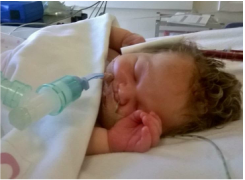 Towards the end of pregnancy, thoughts are preoccupied with delivery. Will it hurt? What pain relief will I need? Even, how will I know that labor has started? I found myself asking. But, not once did it cross my mind that my baby might be poorly. On the tenth day past my due date I lost a little fluid. I had planned on having my baby at a midwife-led unit, as I was considered low risk, so I went in and they confirmed that it was in fact amniotic fluid. I was sent home and told to keep checking my temperature and rest up until contractions started. I had a few contractions on and off over night. In the morning I went back and as labor had not progressed I was sent to the hospital. Poor CTGs and a LOT of meconium present when my waters were broke meant they wanted me in theatre for an emergency section, and fast. Penelope arrived half an hour later. The room was full of people but I couldn't help but think that it seemed dreadfully silent. We hadn't heard her cry. I, however, had begun to cry and it was as I looked at my husband that we heard the faintest of whimpers. I caught a glimpse of her as she was wheeled out. She needed help breathing. Whilst I was in recovery my husband had been to see her in NICU and brought me a picture. She was perfect. But, it wasn't looking good, she was on 100% oxygen and couldn't breathe on her own. She had severe meconium aspiration and persistent pulmonary hypertension as a result. I managed to get myself into a wheelchair and go and see her. By this point she was on an oscillator, which was just petrifying to behold. My brand new, delicate baby was shaking away. We sat there for hours watching her sats, they were going down instead of up. Nitric oxide didn't work either. We sat with her for ten hours and then the doctor wanted to speak to us. They had exhausted all the options at our local NICU, there was nothing more they could do now. He mentioned something called ECMO but there are only a few places in the country that do it. The closest place to us was Glenfield, Leicester, three and a half hours away. Luckily for us, there was a bed and Penelope met all the criteria to qualify for it. ECMO is basically a lung bypass. Blood is taken out of the heart by a tube in the neck and the oxygen is added to it outside of the body and then the blood is returned, doing the lungs jobs, allowing the meconium to be cleared out. The team from Leicester came the following day, put her on ECMO and took her to Leicester in an ambulance where she stayed on ECMO for 36 hours. My husband followed her there and I was discharged the following day and met them both there, and although phenomenal to behold, it was easily the most terrifying thing I have ever witnessed in my life. She was then brought back to our local NICU in a helicopter! And, yes, they had teeny tiny ear defenders for a newborn! She was already proving to be a fighter. She was off the ventilator 24 hours later, but our NICU journey was nowhere near it's end. She was now breathing on her own but was unable to maintain a safe blood sugar level without a high concentration of dextrose. It took a couple of weeks to get the results back from the myriad of tests performed. It transpired to be something quite rare we were dealing with. She has congenital hyperinsulinism which means that she produces too much insulin, like the opposite of diabetes, causing dangerously low blood sugar. This was completely unrelated to her breathing difficulties she initially faced. Even though she was admitted to NICU with what was a relatively "common" newborn problem for full term babies, that being meconium aspiration (albeit she had it to the extreme, the most severe case our local NICU had seen) it was dealing with awaiting a diagnosis for something more complicated afterwards that was particularly difficult. I can certainly sympathise with any parent whose child is in NICU with a rare, genetic condition not picked up on during pregnancy and waiting for the results of test after test. And, perhaps the most wearying thing of all was not knowing when we would be able to bring our baby home. 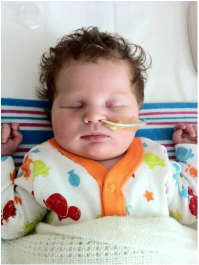 Once she was on her medication and beginning to stabilize there was light at the end of the tunnel. However, from there we had difficulty "teaching" her how to feed as she had previously been NGT fed whilst we awaited a diagnosis. This was what felt like the most tedious part of our stay in NICU. She had reflux and consequently ended up on even more medications and with a speech and language therapist and dietitian visiting her now. It seemed that she could not keep a bottle down, even the tiny bit she could manage. And, worse, when she was sick she would go hypo and her blood sugars would drop. This prolonged our stay in NICU a few times. But, after six weeks and two days and a very long discharge planning meeting and two nights 'rooming in' with Penelope, we were able to take her home. With the NGT still in. My husband was shown how to pass one. She was off it in no time when we brought her home and could practice feeds round the clock! I think that even though it is a great shock delivering a baby prematurely, it is just as much of an unpleasant surprise having a poorly full term baby that needs neonatal intensive care. What I would like to let any parents in a similar situation know should they be reading this, is that it really does get easier. And once you can accept that taking your baby home will happen when they are ready, it can even become enjoyable! The nurses are utterly fabulous, what a job to do! And are of great comfort. We documented and enjoyed some of Penelope's "firsts" while we were there as if we were at home, but had the advantage of a helping hand. For example, the first bath! It is a place full of ups and downs, but take solace where you can, even if it is reading this for five minutes while your new baby takes a nap. And, most of all CONGRATULATIONS on your new arrival, from a parent of a 'NICU grad'. Gianna Pickup 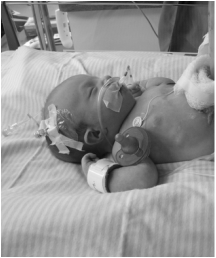 Gastroschisis, the what..... Gastroschisis is a birth defect that causes the intestines to protrude from a hole in the abdomen, typically to the right of the umbilical cord. Occasionally, other organs are involved as well. This must be repaired surgically after birth, although surgery is not always possible immediately and depends on many factors including the amount of bowel outside of the body. While approximately 90% of affected infants survive in industrialized nations with proper medical care, there is still a 10% mortality rate due to complications or related defects and infections – even with the best medical care. [In the USA, published survival rates range from 83%-97%1]In nations without access to proper medical care, the mortality rate is often 100%. In the United States, Gastroschisis affects 1 out of every 2229 babies according to the CDC2, although the actual rate varies by state. California, for example, published a 2005 report which showed the incidence to be 1 in 1727 births3and Texas rates show the incidence to be 1 in 1683 in 20094. In Canada, the current rate is 1 in 2272 with an exception of the area of Nunavut, which for unknown reasons is as high as 1 in 510 births5. Worldwide, rates of gastroschisis in industrial nations vary between 1 in 2000 and 1 in 33336, although some regions have higher rates, such as Wales which is reported at 1 in 16127 births and an area in Australia with an incidence as high as 1 in 8928. According to the International Clearinghouse for Birth Defects Surveillance and Research, a 2009 report from 16 separate registries shows that South America as a whole has the highest reported incidences of gastroschisis in the world, at 1 in 1063 births4. It is worth noting that there is little to no data collected on incidences in Africa. Rates of gastroschisis are increasing worldwide, and this trend is being called a “pandemic” by many researchers9. The medical community still does not know what causes gastroschisis, but researchers have found many correlations and risk factors including aspirin and other medication use10, exposure to certain chemicals, low maternal body mass index, and genitourinary infections11. Studies from Utah are demonstrating a familial link to gastroschisis, with one study showing that 23% of families studied had more than one relative with gastroschisis12. However, the single largest risk factor for having a child with gastroschisis continues to be young maternal age. The CDC continues to monitor these trends in the US13. Additionally, a 2006 study from the UK showed that mothers under 20 years old have an incidence of gastroschisis ranging from 1 in 1123 to 1 in 40914. Although the overall prognosis is good for most infants born with this birth defect provided they have access to medical care, complications do arise. Studies show that gastroschisis is the leading cause of intestinal transplantation15, and that 40% of gastroschisis survivors will need to be readmitted to the hospital at some point due to complications, the most common of which are bowel obstruction and abdominal pain16. Furthermore, having a child with a birth defect can put many stressors on a family that others simply do not experience, and it is recommended that families have a strong support network17. The Why of Avery's Angels: Avery’s Angels Gastroschisis Foundation is the only nonprofit in the United States to assist and support those affected by gastroschisis. When we first formed, Avery’s Angels was the only nonprofit in the world with this cause; now we are joined by the Luey Jacob Sharp Foundation18 in the United Kingdom. In 2008, Avery's Angels founder, Meghan Hall and her partner Jared Rauen found out that their little boy would be born with gastroschisis. During Avery’s life, he not only provided them with hope and joy, there was an incredible rise in their community to support the little family through the process. From meals, to gas cards, prayers and thoughts to folks donating blood in solidarity for Avery’s fight. Even Avery’s team at UNC Chapel Hill NCCC was also heavily involved in educating and supporting Meghan and Jared during Avery’s time. There were angels around them the entire time. Avery stayed 107 days in the NICU- from April 14th 2009 and passed on July 30th 2009 unexpectedly from unforeseen complications. During this time the little family had many happy memories and a well-supported experience because of the tremendous efforts of their entire community. At the time there was not a centralized organization for support or information. Inspired by the “angels” that had been present in their own experience and fueled by the hope that was Avery’s life, Meghan began blogging about forming a foundation to promote that community of support, education and awareness for others affected- providing the same angels they had, for others. With the encouragement of “Avery’s Angels” the team at UNC Chapel Hill, their family and community, Meghan launched Avery’s Angels September of 2009. Between Meghan’s first blog post and Avery’s ngels acceptance as a registered 501c3 nonprofit on April 29, 2011, some amazing individuals came together and worked collaboratively to make the dream of a gastroschisis nonprofit possible. The initial core team was Meghan Hall, Herb Richter, June McDowall, Sheila Palus, and Kayte Thomas. The core team worked hard on planning, advocacy, legal work, and logistics to make the foundation possible. Added in soon after were Lea Krutel, Megan Turcotte, and Autumn Hernandez who further contributed to the founding efforts. These passionate pioneers were all impacted by having a child in their family born with gastroschisis – a combination of parents, grandparents, and great grandparents who wanted to make the world a better place for others who were dealing with the same experiences. Each of them brought a unique perspective to the budding organization because of their specific outcome with gastroschisis; they brought with them the knowledge of life, death, short bowel syndrome, divorce, advocacy, heart break, and love beyond measure, amongst other things. It is to this committed group of people that the world owes gratitude for the existence of the first nonprofit in the world dedicated to supporting gastroschisis families. To this day, we are founded on that initial cause of providing support to families as being our primary purpose, funding the needs of the cause above all else, and encouraging research to discover the causes and promote prevention. What do we do? And why do we do it? Avery’s Angels Gastroschisis Foundation’s mission is to promote awareness, research, and support for gastroschisis worldwide. We accomplish this by: – Creating a national and international network of families dealing with gastroschisis and related complications. – Providing emotional and financial support to families who have or are expecting babies born with gastroschisis. – Supporting friends and families of survivors of gastroschisis and those who have lost a loved one to this disease. – Promoting national awareness annually via Gastroschisis Awareness Day events every year on July 30th. – Collaborating with clinicians to facilitate research to find the cause. – Assisting in other ways as indicated by the circumstances. AAGF is an all-volunteer foundation. There are no paid employees. We depend on your donations and volunteers to accomplish this vital mission. Please encourage family and friends to “Get Involved.” To learn more about how you can help visit the Volunteer page on our website! It is tremendously important that our parents and patients have lifetime support, which is what Avery's Angels is founded on providing. The initial NICU stay can range anywhere from 14 days (our personal record!) to over a year. One of our parents, Laura Violet Marie writes on the most important advice for an expecting or NICU gastroschisis parent is: "Patience! It's probably the hardest thing to do but you cant rush those little tummy's.. We all want to go home right away and as each day adds to your total you get more and more anxious and envious of each mom that got to take their baby home the next day.. But your time will come and your baby will heal in the time that he is she is supposed to! Tell people to stop asking you when he/she will be coming home! I was frustrated when people would ask me because i myself didnt know and i follow gastro mom's stories now and see countless people comment on their pictures "when is she coming home? How much longer?" And it aggravates me for them!" This is so true! Gastroschisis is variant, based on many physiological features, how large the defect is, how much intestine was out, how extensive the damage was/is, what gestational age the baby was born at, how the bowel is recovering or functioning. This is why it is crucial that our parents have proper support from those who have been through this and most importantly set up a good line of open communication with their physicians and practitioners. Gastroschisis parent Erin Herrman says: "Most importantly, ask questions. It's scary to leave your new born there alone ( alone because YOU are not there 24/7). The worst feeling is to be alone and confused. Do not worry that your question(s) might sound stupid. There is no such thing as a stupid question. Knowing and understanding everything your newbie is going through will make the time apart more bearable and make you feel more comfortable knowing the best health care professionals are there to treat your baby in a way you may not be incapable of." This is crucial. While it is easy to get caught up with how disenfranchising being a NICU can feel for a parent, it is important to take a breath and find the right way to communicate with those around you. Remember, the physicians and practitioners are there with the same goals as you are- healing, health and home. It is extraordinarily difficult to build a relationship in the NICU especially with so much going on, but speaking up, speaking often and seeking those opportunities will not only benefit your child, it will also help a parent heal from the NICU experience too. Recovering from your NICU experience is important. Especially for our gastroschisis parents. Having confidence in both yourself as a NICU parent and the medical relationships you are forming is crucial. Building those healthy relationships with the team will help families feel more confident at home. Most importantly if and when signs may pop up at home that warrant seeking medical involvement, help families will not have as many reservations for seeking timely professional help. Odd temperature spikes, tummy pains, changes in stools, excessive vomiting, distention in the bowel area can all indicate concerning signs that timely medical intervention can improve outcomes for. Support is everything, so asking for help is the name of the game, Gastroschisis mother Belinda Smithson says: "We didn't receive any help from anyone during our stay or when we arrived home. It was awful and I wasn't going to ask for it. Before you go into hospital write a list, or get others on here to write a list of things that could be of help. We lived on takeaway food for the whole time and it was awful frown emoticon a nice home cooked meal would have been lovely. This goes for when you get home too." But make sure you have a good balance of NICU visitors (remember! more people bedside ups the risk of infection!) once baby gets home it is OK to take your time with visitors if you feel you need alone time (finally!). Gastroschisis mom Sarah Boyer says: "Be sure to make time for you, your husband and child to get things back to normal before inviting any other family members over. Whether this takes a week or a month...they can wait. Of course, if you need help, ask them! But don't feel obligated to have everyone over right away." Support is what our families need, from their practitioners to their families and also in the resources that are available to them. That's where Avery's Angels has found its purpose. We not only provide all the information accessible to our families, we also have over 10 programs to help support our families across the entire NICU experience. We are here to be your angels! Learn more about Avery's Angels at www.averysangels.org Citations:
|
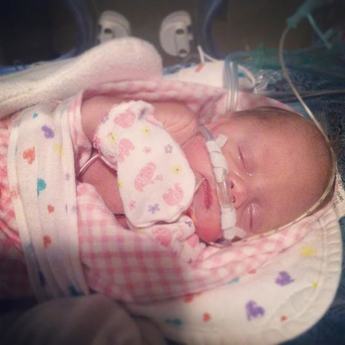
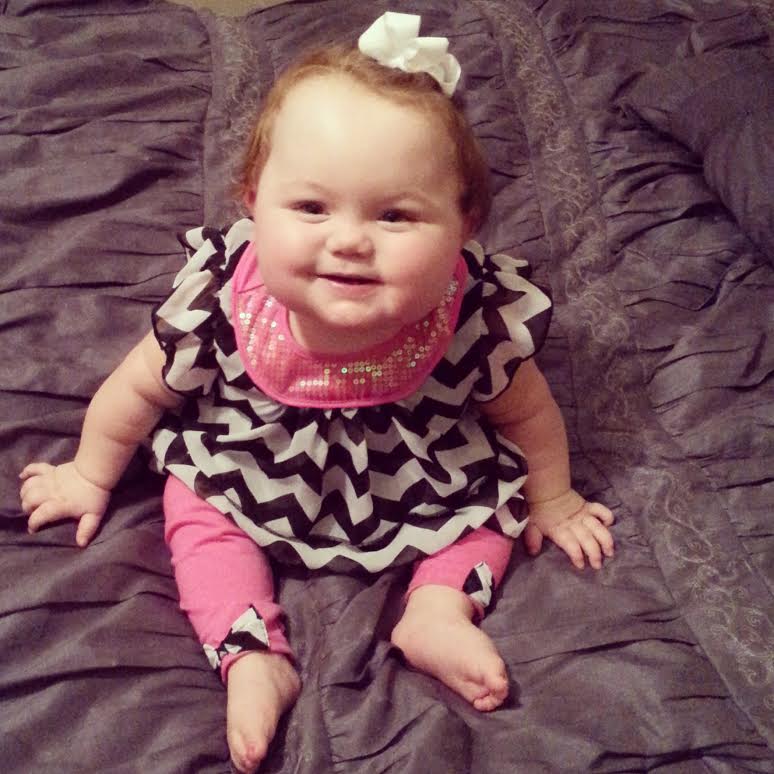
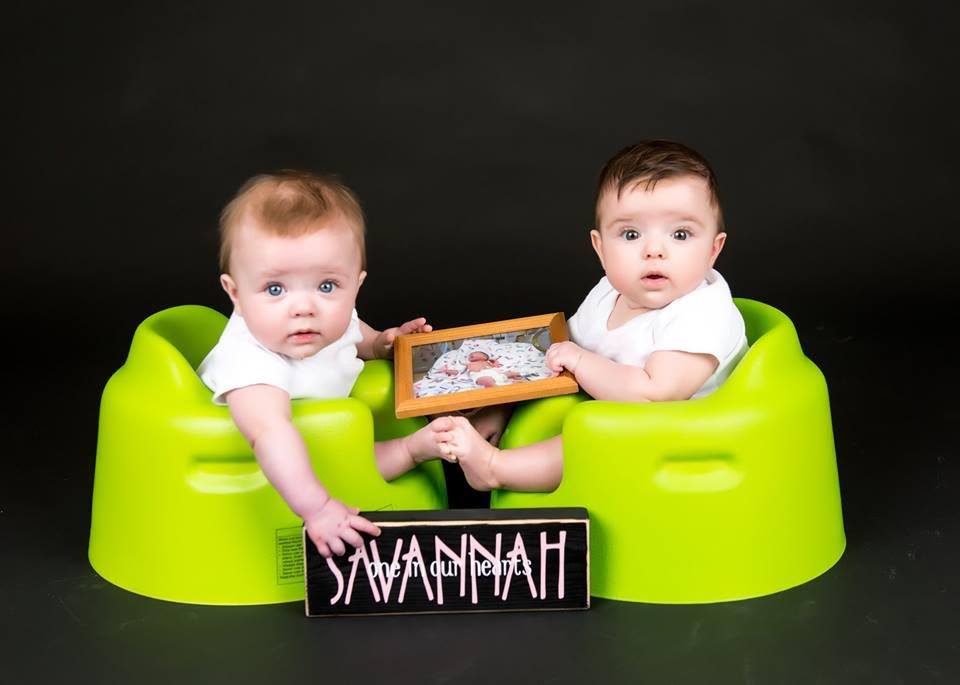

 RSS Feed
RSS Feed